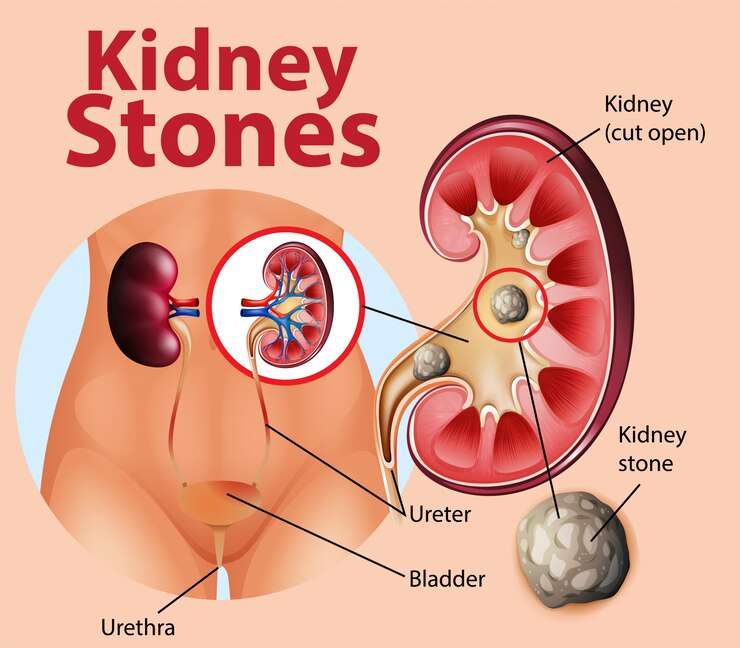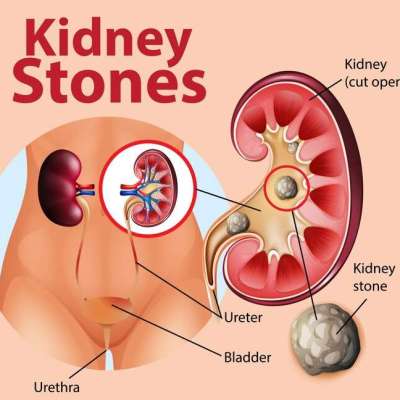Kidney stones are clusters of crystals that form from minerals and other substances in your urinary tract. Most stones pass out of your body in your pee on their own, but they can be very painful as they move through. You might need a procedure to break up or remove the stone if it can’t pass on its own or is causing a blockage. Dr. Abhijit Gokhale is recognized as a leading urologist specializing in the diagnosis and treatment of kidney stones.
Risk Factors for Kidney Stones :
Kidney stones are a common health issue that can cause severe pain and discomfort. While anyone can develop kidney stones, certain factors can increase your risk:
Dehydration
Not drinking enough fluids, especially water, can lead to a buildup of minerals and salts in the kidneys, increasing the risk of stone formation.
Diet
A diet high in animal protein, sodium, and sugar can contribute to kidney stone development. Excess intake of certain foods like spinach, beets, and sweet potatoes may also increase the risk.
Family History
If you have a close relative who has had kidney stones, you are more likely to develop them yourself. Genetic factors can play a role in stone formation.
Obesity :
Being overweight or obese increases the risk of developing kidney stones. Excess weight can lead to insulin resistance, which may promote stone formation.
Certain Medical Conditions :
Conditions like inflammatory bowel disease, chronic diarrhea, and hyperparathyroidism can increase the risk of kidney stones.
Medications
Some medications, such as certain diuretics, antidepressants, and anti-seizure drugs, may increase the risk of kidney stones in some people.
Can kidney stones be prevented?
The things you eat and drink can impact your risk for kidney stones. Talk to your healthcare provider or dietitian about ways that you can reduce your risk. They might recommend:
Drinking plenty of water.
Limiting animal proteins.
Limiting foods high in sugar and sodium.
Limiting foods high in oxalates. If you have calcium oxalate stones, your provider might recommend you avoid foods like spinach, rhubarb, wheat bran, tree nuts and peanuts.
Maintaining a weight that’s healthy for you.
Eating foods that are good sources of calcium. While it may not seem like it, foods high in calcium can help prevent kidney stones. The same isn’t true for calcium supplements or antacids with calcium, which can increase your risk for stones.
Prescription medications. If changes to the things you eat don’t help, your provider may prescribe medications that help prevent kidney stones. The type of medication depends on the type of stones you get.
For expert treatment of kidney stone treatment in Pune, trust Dr Abhijit Gokhale, a highly skilled urologist with extensive experience in minimally invasive procedures. Contact us today to schedule an appointment and take control of your kidney health.
👉Visit Here For More Info: 👉 https://www.drabhijitgokhale.com/kidney-stone

